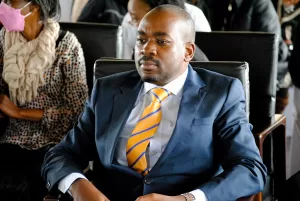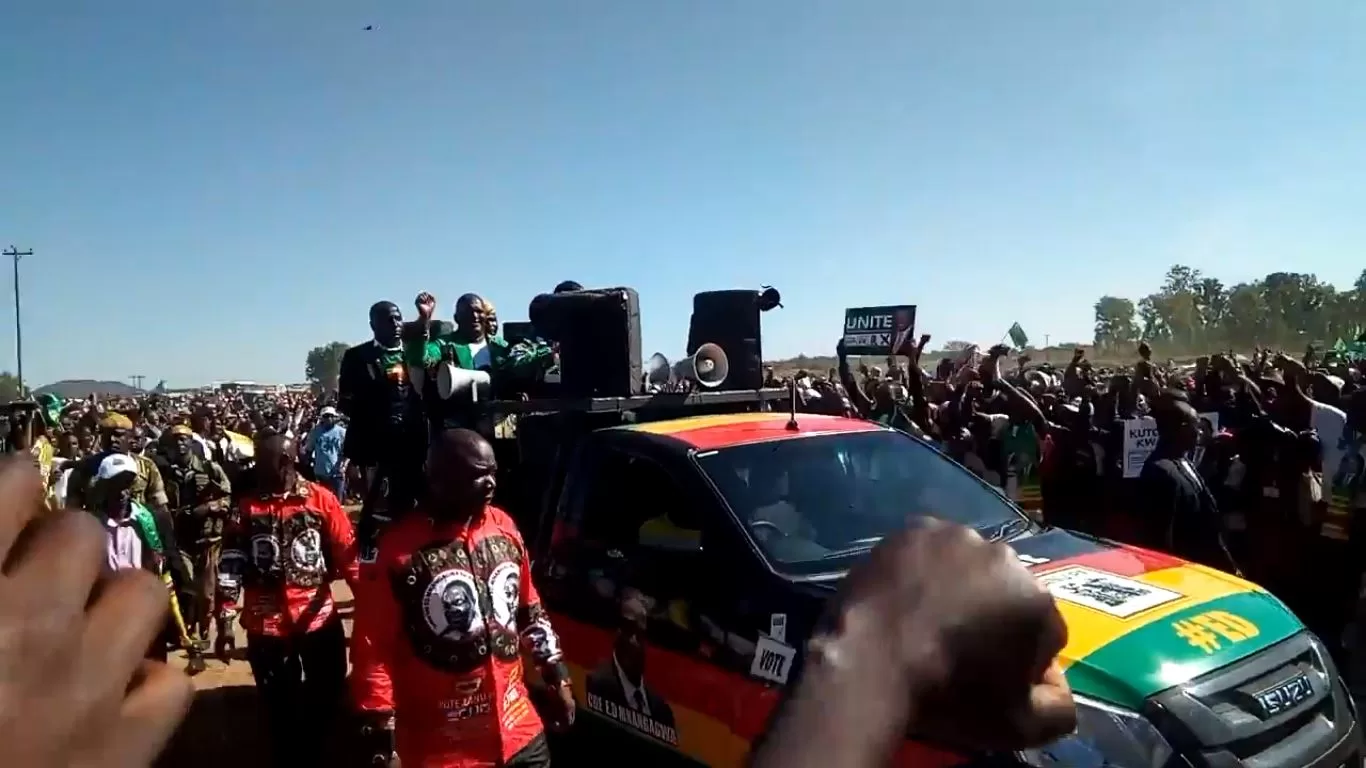Despite his pledge not to curtail people’s rights when he came to power in November 2017, the past five years under President Emmerson Mnangagwa has seen the rights landscape shattered in Zimbabwe. Now we have another election coming up this week. What hope remains?
The world should have known better when Mnangagwa declared in his first inauguration speech that despite deposing Robert Mugabe through a coup, his predecessor remained his “mentor, comrade-in-arms and my leader”. His apprenticeship under a ruthless dictator has since proved to be a triumph for autocracy. Known as “the crocodile” because of the political cunning, Mnangagwa reigns over a country grappling with the same issues as before – high inflation, poverty and extreme repression.
After visiting Zimbabwe in September 2019, the United Nations special rapporteur on the rights to freedom of peaceful assembly and association, Clément Nyaletsossi Voule, said he had noted “a serious deterioration of the political, economic and social environment since August 2018”.
Since tasting power, Mnangagwa has silenced dissenting voices and has used a captured judiciary to jail political opponents, the most prominent being opposition MP Job Sikhala and another outspoken critic Jacob Ngarivhume.
Sikhala, a lawyer, has been unjustly incarcerated for over a year for speaking out as a legal representative of the family of an opposition activist Moreblessing Ali, who was killed by a Zanu-PF member.

Citizens Coalition for Change President Nelson Chamisa
As Zimbabwe heads to the polls for general elections on 23 August, the political murders have continued. In this election, Citizens Coalition for Change (CCC) President Nelson Chamisa (right) poses a serious threat to Mnangagwa’s reelection bid. During the last 2018 elections, the Zimbabwe Electoral Commission announced Mnangagwa as the winner with 50.8% of the vote compared to Chamisa’s 44.3%. The opposition disputed the election outcome.
Five years on Chamisa is running for the presidency under the CCC banner, a party he formed last year after he was controversially removed from what used to be the main opposition party, the Movement for Democratic Change.
Chamisa, a Pentecostal preacher, is popular and charismatic. He says though the political field is tilted against the CCC, something Mnangagwa denies, claiming the elections will be free and fair. Evidence suggests otherwise.
During the first week of August, an opposition supporter was killed by Zanu-PF members as they disrupted their rival’s rally in Harare. CCC activist Tinashe Chitsunge died when he was allegedly pursued and stoned by a mob of Zanu PF supporters in Harare’s Glen View suburb.
Victims of Mnangagwa’s regime go far beyond high-profile politicians and their lawyers. University of Zimbabwe student leader Gamuchirai Chaburumunda is one of many people who has been at the receiving end of the brutal regime. She was arrested with five other students while protesting against Sikhala’s continued jailing. Now out on bail and reporting to a police station twice a week, Gamuchirai believes that during her month-long detention, the state sought to break her spirit and instil fear in her and others.
Gamuchirai was first detained at Harare central police station and later at a maximum-security prison. She says she is haunted by flashbacks from her time in prison.
“I was detained with all sorts of people; murderers, rapists, drug addicts. Some detainees were pregnant, others even had babies. There were others in the psychiatric cells. The most heart-breaking thing is when strip searches were conducted,” she said in an interview with Index.
“We would be told to strip naked and be searched for any illegals almost every time we came back from court. It made me feel like detainees have no right to privacy.”
The intimidation is made worse by the passage of repressive legislation, notably the Patriotic Act, which criminalises criticising the government, and the Maintenance of Peace and Order Act, which restricts freedoms of assembly and association. An amendment to the Private Voluntary Organisation Act is set to further restrict the operations of non-governmental organisations.
The strongman behaviour has not relented and the electoral playing field is further tilted in Mnangagwa’s favour with the police, public media and the courts acting as an extension of the ruling party. The police have banned dozens of opposition rallies, for example, while the courts have been used to remove one of Mnangagwa’s presidential election challengers, Saviour Kasukuwere, from the ballot even though his candidacy had been accepted by the country’s electoral commission.
The government also issued new directives to restrict advertising by opposition political parties and candidates.
Media Institute of Southern Africa (Misa-Zimbabwe) director, Tabani Moyo, said in the run-up to this month’s elections more journalists have come under attack compared to the last 2018 elections.
“Already we have seen journalists being on the receiving end of violations, the recent case being of Anastacia Ndlovu, Pamenus Tuso and Lungelo Ndlovu. These three were assaulted by members of the ruling party while covering [election] lead-up events. In 2018, the last election, we recorded six cases of violations; the bulk of violations then came after the announcement of the election results. This time around we have already recorded 13,” Moyo told Index.
Moyo noted that although the Constitution provides for editorial independence, observer mission reports from previous elections noted that the state-owned media was mostly reporting on the ruling elites. He said there is a general hidden hand instructing media content to be in favour of the ruling class.
He decried the latest move on billboards, saying by their nature billboards are part of a communications approach that political parties should all be able to access and utilise to get their message across.
“A billboard is a public square. It is supposed to be an area where we articulate our ideas. No one should tamper with opposing views,” he added.
Political analyst Ricky Mukonza said the muzzling of freedom of expression is something Zanu-PF is known for. He highlighted the attempt to pass the draconian Patriotic Act as a case in point.
“It’s simply a repressive piece of legislation that should not have space in a democratic country,” said Mukonza.
A week before the elections, reports emerged that ZEC had secretly conducted postal voting, in violation of the law, for police officers who were being forced to vote for Zanu-PF.
Chamisa tweeted afterwards that it was illegal and that these postal votes would not be accepted. But when the Zanu-PF are using all the dirty tricks at their disposal to retain power how will successfully contest this? It seems Zimbabwe is heading for another sham election.





